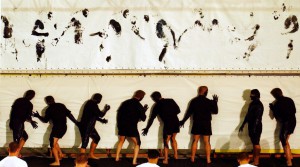Ricco il «bottino», reso pubblico, di un attacco informatico alla Hacking Team, leader mondiale in sorveglianza digitale. Ne emerge un quadro di affari con governi che violano i diritti umani e vendita di software per spiare computer e telefoni di giornalisti e attivisti. Un’intervista con Claudio Agosti, fuoriuscito dall’impresa milanese e noto mediattivista a favore della privacy
Fino a pochi giorni fa l’azienda milanese Hacking Team (HT) era considerata uno dei leader mondiali nel mercato del malware. I suoi prodotti – quei particolari software usati per mettere sotto stretta sorveglianza i computer e gli smartphone di attivisti, militanti politici e giornalisti – erano richiestissimi da polizie e servizi segreti di tutto il mondo. Poi, la sera del 5 luglio, un attacco informatico devastante ha colpito i suoi sistemi.
400 GB di dati vengono sottratti dai server della società capitanata dal CEO David Vincenzetti e resi disponibili in rete attraverso torrent. Tra il materiale pubblicato ci sono i gioielli della corona, come il codice sorgente di RCS – acronimo di Remote Control System –, prodotto di punta di HT e frutto di 10 anni di lavoro e investimenti in ricerca e sviluppo. Ma non solo. Nell’elenco dei leak figurano altri file preziosissimi, come i cosiddetti 0day: vulnerabilità presenti nel codice di alcuni programmi – in questo caso i popolarissimi Adobe Flash Player e Microsoft Internet Explorer – che nelle mani giuste diventano vettori per condurre attacchi informatici e prendere il controllo di un computer. Continua a leggere

